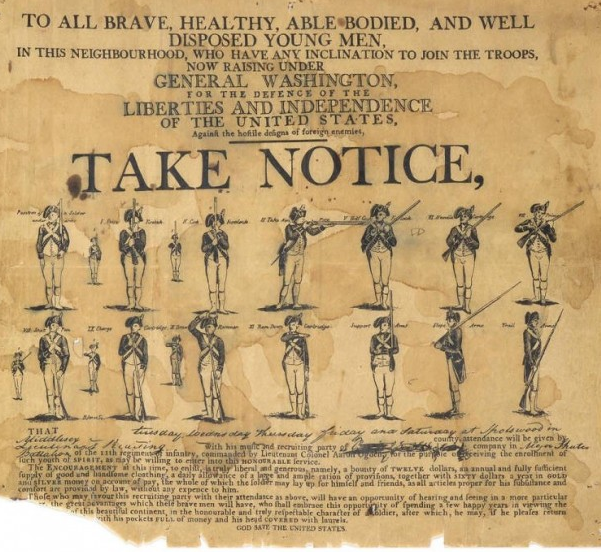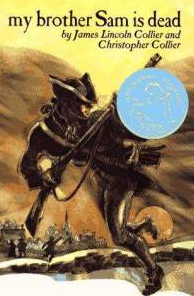What happens when a young chick-lit reader falls in love with the ultimate boy book?
My Brother Sam Is Dead by James Lincoln Collier and Christopher Collier has one of the worst spoiler titles in all of juvenile fiction, which may explain why I let it sit so long, hoping the book report would simply write itself.
An early devotee of what might be called “pre-chick lit,” I preferred reading about other girls–Pippi and Heidi, Ramona and Beezus, the March sisters, and Margaret Simon, whose daily pleas to God were being read out loud to a growing group of fifth grade girls, giggling in the bathroom of Widsten Elementary School in Wayzata. That’s how I knew Sam wasn’t my type. The front cover featured a boy in pilgrim-buckle shoes and a bayonet. Worse, there was a Newbery Honor medal attached to it, a sign librarians would love it, while eleven-year-olds like me would hate it.
I spent weeks complaining about the miserable injustice of the assignment, while my parents, both English teachers, ignored me. Having finally run out of excuses the weekend before the report was due, I took my place on the living room couch and with a heavy sigh resigned myself to turning the pages.
The first few started out breathless enough, as sixteen-year-old Sam Meeker arrives at his family’s Connecticut tavern after a thirty-mile hike from New Haven, wearing a uniform designed by Benedict Arnold. Like the father he butts heads with, Sam is cocky, hard-headed, and, of course, utterly irresistible–think James Dean with a cause and a tri-cornered hat. When he steals his father’s musket to go fight the Brits, his younger brother, Tim, is torn between his love for Sam and loyalty to his father.
Though we know which side will eventually win the Revolutionary Ward, the hardships endured by soldiers and civilians make it clear that war is hell no matter which side you’re on. And as the troops march ever closer to the Meeker family, I found myself turning again and again to the title page to see if there was any way to avoid the terrible ending it predicted. There wasn’t. Even so, Sam’s execution in the final pages of the book came as a violent shock–one of the reasons it still ranks high among the American Library Association’s list of the top 100 most challenged books, more than thirty years after it was published. 
It was the first book that made me cry–but it was more than that. It seemed to mark the moment in my reading life when I was no longer just skimming the surface, comforted by characters who were just like me. The unfamiliarity of the story and setting seemed to have forced me to read deeper. And in doing so, I felt deeply discomforted, unsettled, full of questions. I also wanted to keep reading.
In the thirty years since I read My Brother Sam Is Dead, I’ve often heard reports that books are chosen for classrooms based on the fact that boys will only read books about boy characters, while girls will go along with whatever is given to them. And though this is often cited as an example of how girls are given short shrift, I sometimes wonder if the harm doesn’t fall harder on boys. Leaving your comfort zone–not to mention your gender chromosome–is one of the great pleasures of reading. You try on another person’s life and leave a book with the feeling that you have been somewhere you could not have visited on your own. This is why I have a copy of My Brother Sam Is Dead on our bookshelf, waiting for the day my three sons are ready to read it. It’s also why I will ignore all their complaints when a good teacher requires them to read Little Women.

